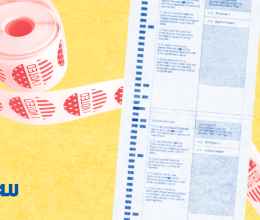Imagine showing up to your local polling place and you are not sure of the rules around how to cast your ballot. You ask for assistance from poll workers, but none of them can speak your language or communicate easily with you.
This is the experience that thousands of deaf or hard of hearing voters have every election. Most information on elections is provided in written English, but Deaf people may speak American Sign Language primarily, meaning that nuances of complicated election processes can be lost to them. When Deaf voters arrive at polling places, it is difficult to communicate with poll workers, leaving many Deaf voters feeling alienated and disenfranchised.
The ACLU of Ohio is excited to launch a new webpage to answer the voting questions of individuals who are deaf or hard of hearing. With the voter registration deadline fast approaching on Tuesday, October 11, voters will need information about how to complete registration forms, where to submit them and how to vote. While there are significant barriers to navigating the voting process for someone who is deaf or hard of hearing,, voting represents one of the most radical ways for the Deaf community to tell their elected officials they want to be heard.
The page describes the three most important parts of the voting process, registering to vote, bringing the correct identification, and casting your ballot. Each section features videos in American Sign Language (ASL) and brief written instructions.
The final video describes one of the most complicated aspects of voting for Deaf people: securing accommodations such as ASL interpreters. All polling places are required to be accessible according to the Americans with Disabilities Act, a 1990s civil rights law that guarantees accommodations, employment non-discrimination, telecommunications access, and state and local government services for individuals with disabilities. If you require an ASL interpreter, please contact your local board at least 72 hours ahead of your visit. Assistance can also be requested at any time during the voting process. View our video, Deaf Voter Rights – Accessible Polling Places about how to contact your local board of elections and ask for help.
If you have more questions about choosing the way you vote visit our Vote Center.
While navigating through the voting process may seem intimidating, especially with November’s election weeks away, the ACLU of Ohio wants to make voting easier and more accessible for you. Voting is your opportunity to tell our government how you would like our country to function. For Deaf voters, voting means their voices can be heard and they can have full participation in our government. For all Americans, more votes mean a stronger republic. If we are truly ready for an inclusive democracy, let’s count every voice. Let’s count every vote.






